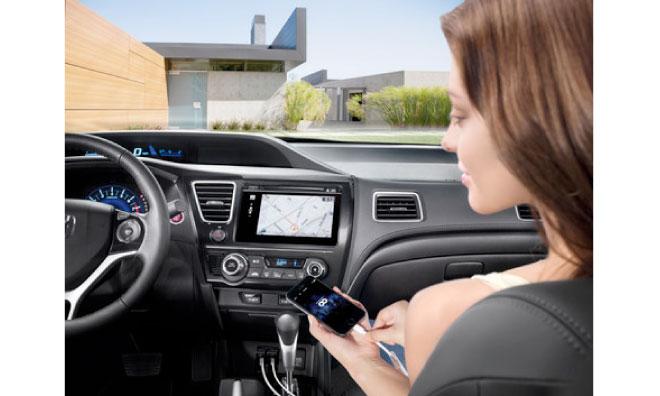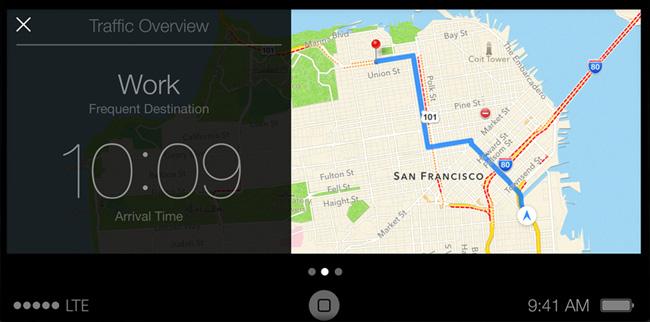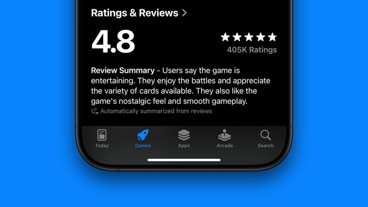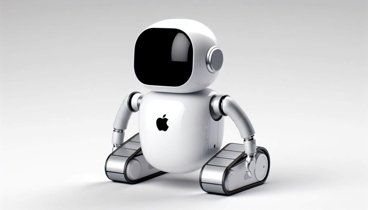Apple is not the only major smartphone vendor with an eye toward a vehicle-integrated future, as Google is reportedly set to announce a collaboration with Audi that would have future cars from the automaker run in-dash systems based on Android.
Honda's Display Audio HondaLink Navigation powered by an iPhone
Mountain View, Calif.-based Google and Ingolstadt, Germany-headquartered Audi will unveil the partnership at next week's Consumer Electronics Show in Las Vegas, according to The Wall Street Journal. Other companies, such as graphics and application processor maker nVidia, are also expected to join the initiative to develop Android-based "infotainment" systems.
Similar to Apple's iOS in the Car strategy, which the company revealed at its annual Worldwide Developers Conference in June of this year, Google's end goal is to allow a vehicle's occupants to use the same apps and system functions on the in-car systems that they do on their Android-powered smartphones. One area where Apple and Google are said to differ, however, is in the idea's implementation.
Apple's initiative is designed with the iPhone as the "brain" of the system — Â that is, many system functions would not be available until an iPhone was connected, either via a wired tether or wirelessly through Bluetooth or Wi-Fi. Japanese automaker and Apple iOS in the Car partner Honda introduced such a system earlier this month for their 2014 Civic and 2015 Fit automobiles.
Google, in contrast, wants to run the software off of dedicated hardware inside the car, according to the report.
Audi's participation is particularly interesting as Audi's parent company, Volkswagen, has long had ties to Apple. Volkswagen and Apple collaborated on the iBeetle, a new version of Volkswagen's venerable compact that features deep iPhone integration, earlier this year, though the Wolfsburg, Germany-based automaker was notably absent from Apple's initial list of partners for iOS in the Car.
The Audi collaboration will be Google's first public partnership for Android in the automotive field, though one industry insider says that the open source mobile operating system has already begun making inroads even without Google's overt support. Rajeev Kumar, a business development executive with chipmaker Freescale Semiconductor, told the Journal that "we are starting to see an uptick of Android use in car makers, starting in Asia and working its way across the world."
Apple has already established deep relationships in the auto world. In addition to Honda, Mercedes-Benz, Nissan, Ferrari, Chevrolet, Infiniti, Kia, Hyundai, Volvo, Acura, Opel, and Jaguar have all announced support for iOS in the Car for 2014 models. Several of those have also begun integrating Apple's Siri Eyes Free functionality, a precursor to iOS in the Car that enables drivers to activate Apple's digital personal assistant with a steering wheel-mounted button and pipes both the driver's commands and Siri's responses through the vehicle's audio system.
 Shane Cole
Shane Cole








-m.jpg)






 Marko Zivkovic
Marko Zivkovic
 Christine McKee
Christine McKee
 Andrew Orr
Andrew Orr
 Andrew O'Hara
Andrew O'Hara
 William Gallagher
William Gallagher

 Mike Wuerthele
Mike Wuerthele
 Bon Adamson
Bon Adamson




-m.jpg)



143 Comments
Android in Audi vehicles? What a major misstep and failure to understand their own customers. Android is the low-rent OS that mostly appears on crappy, cheap hardware. iOS appears only only the finest hardware. Clearly Audi products have more in common with Apple, and I am willing to bet their customers share very similar taste and economic advantages. Android belongs in Kia and Hyundai.
Audi? LOL. Jason Statham won't survive his next car chase with Android on board. :D
[quote name="SpamSandwich" url="/t/161391/google-takes-aim-at-apples-ios-in-the-car-with-audi-android-partnership#post_2451462"]Android in Audi vehicles? What a major misstep and failure to understand their own customers. Android is the low-rent OS that mostly appears on crappy, cheap hardware. iOS appears only only the finest hardware. Clearly Audi products have more in common with Apple, and I am willing to bet their customers share very similar taste and economic advantages. Android belongs in Kia and Hyundai.[/quote] I am surprised the Koreans didn't do it already. They can call it "Open Dashboard Alliance" with "Open" = "do what Google says or else."
Ha ha. Agree, a luxury car maker whose customer demographic are iPhone, not Android, users ties their product with the race-to-the-bottom, we'll-sell-your-personal-info mobile OS. This is a worse marketing decision than Ford's tie up with Microsoft.
I can see where Auto manufacturers would find Android OS integrated into their car as a way to garner control over the services, albeit, Google Android is notoriously not open when the apps compete with Google e.g., music, maps, search, etc. thereby compromising this control, ask SAMSUNG. However, this is a very complicated endeavor where underlying infrastructure is important. A car has a 5 to 15 year lifespan and this means support in the software and hardware for nearly an order of magnitude time horizon greater time horizon for Android 18 months. Apple, albeit not yet in that time league, has a 4X time line support and infrastructure upgrades advantage of 3-5 years for iOS and OSX, respectively. For the auto manufacturer having the driver bring the device to the car, substantially reduces the lifecycle support challenges. Note, i do not mean to say it goes away, but sure is easier. A big concern for the automobile manufacturers is going to be licensing costs, Nokia, Apple, Microsoft, etc. are aggressively pursuing licensing agreements or denial of patents when using Android. Google has not developed an IP strategy that reduces any liability, case in point HTC with Nokia bans in Germany, soon in the US and UK, Apple's successful IP lawsuits with Samsung and more to come on that, and Microsoft on Motorola. It is easy to imagine a licensing cost for auto manufactures of $50 to $100 or more per car. This is a liability that must be on the minds of the car manufacturers. So allowing a phone iOS, Windows Mobile 8, or Android to interact in a limited way with the car is certainly valuable to customers and since these are "bring your own device" relatively low cost and risk free, but Android as core OS in cars is much more problematical.